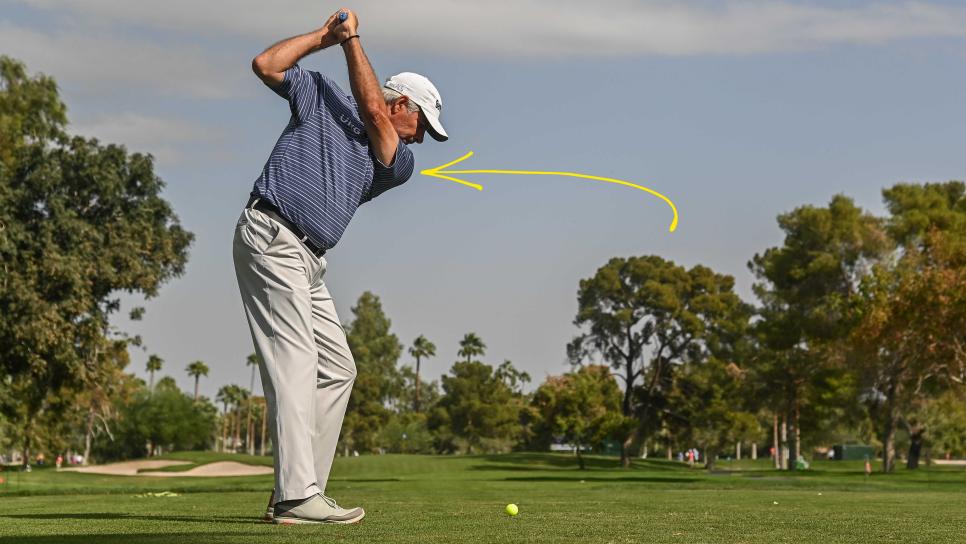Timing Is Everything
Fred Couples: This is my key feel for an ‘effortless’ golf swing

Fred Couples turned 63 this week, but watching his silky tempo never gets old.
As golfers, we might not be able to hit the same positions pros do, but no matter our move, we can—in theory at least—aspire to swing with the same tempo.
Couples’ tempo has been his trademark since his debut on tour in the 80s, but it became the stuff of legend in the late ‘80s and early ‘90s, when he won a Masters and two Players Championships.
In 2014, Golf Digest caught up with Fred Couples and asked a simple question: What’s the key to an effortless golf swing?
You can watch the full clip below. But turns out, he has two of them.
Tempo Tip #1: Big Backswing Turn
Boom Boom says his first key is a simple one: Make a big shoulder turn on the backswing.
Granted, not every golfer will be able to turn as much as Couples on the backswing. But the 1992 Masters champ says making a big shoulder turn won’t just add power to your swing. Crucially, it will prevent you from rushing your transition from backswing-to-downswing.
“The first thing I do is make a big shoulder turn. I think that’s something every good player or good amateur wants to do,” he says. “Once I get the shoulder turn back, I don’t need to think about the change of direction [on the downswing].”
That helps keep the rhythm of your swing consistent throughout your bag, even though the actual speed of your swing will change due to the length of the club. There’s a famous clip of a young Couples demonstrating exactly that in a 1988 instruction series.
“I had this VCR tape,” Golf Digest Top 50 Teacher Shaun Webb says of the clip below. “I watched it on loop.”
Tempo Tip #2: Release The Club Toward The Target
If making a big turn is your thought for the backswing, the downswing is your time to think of releasing all the power you’ve just stored up.
Couples says he does this by feeling like he sends the club towards the target line, which gives him the feeling of a full release and maximum energy transfer to the club. Feeling like the club moves too much “around” your body will send the club “a mile right,” Couples says. Down the target, he says, is the key.
“What I try to do is turn my hips and release the club down down the target,” he says. “Release the club towards the ball, and down the [target] line.”
Of course, it always looks a little simpler when Freddie does it. But his advice is simple enough for the rest of us to follow, and perhaps smooth out our own tempo along the way.

